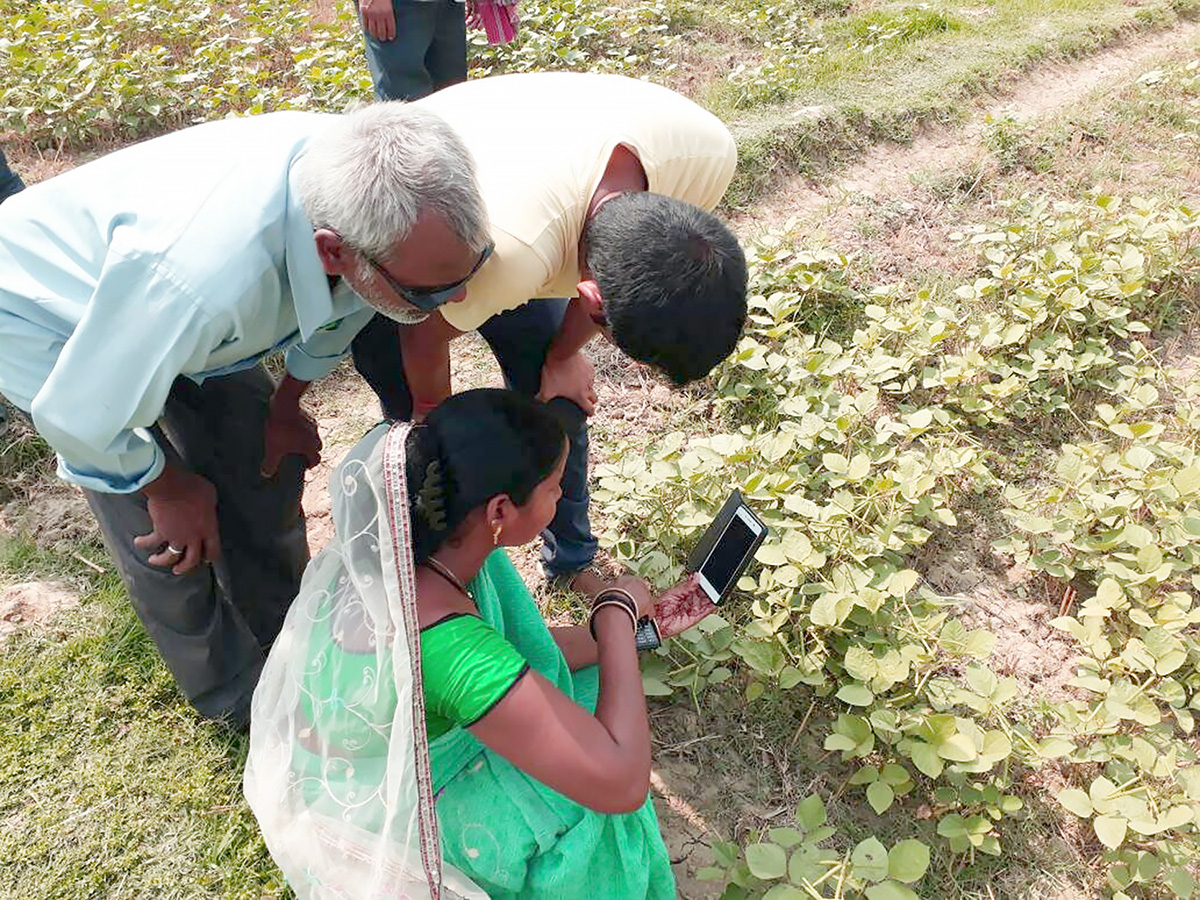Convergence Platform to strengthen collaborative delivery systems in Bihar Agriculture

Bihar, India, June 2020 :
Bihar, the third-most populous state in eastern India, lies in the river plains of the river Ganga’s basin. Endowed with fertile alluvial soil and ground water resources, Bihar has a net sown area of 60% of its total geographical area under cultivation, where rice, wheat, and maize are the major cereal crops cultivated. Agriculture is at the core of the states’ economy, employing nearly 77 % of the workforce and generating 35 % of the state domestic product. With nearly 88% of the state’s poor living in rural areas, improving agricultural performance and related rural non-farm activity is critical for improving livelihoods and reducing poverty. The Cereal Systems Initiative for South Asia (CSISA) is an initiative in this direction that has, since its launch in 2009, been trying to improve food security and farmers’ livelihoods.
CSISA : Partnering to provide sustainable solutions for small and marginal farmers
The Cereal Systems Initiative for South Asia (CSISA) project launched in 2009, supported by BMGF and USAID, endeavours to reach over 8 million small and marginal farmers to improve agriculture yields and farmer’s income in a sustainable manner. A collaborative project, led by the International Maize and Wheat Improvement Center (CIMMYT) and jointly implemented by the International Rice Research Institute (IRRI) and International Food Policy Research Institute (IFPRI), CSISA is a science-driven and impact-oriented regional initiative, aimed at increasing productivity of cereal-based cropping systems in India (Bihar, Uttar Pradesh and Odisha) Nepal and Bangladesh.

Convergent actions to usher sustainable agriculture in Bihar
In Bihar, along with the partner organization JEEViKA (A World Bank-funded initiative), CSISA is helping improve lives of small and marginal farmers, especially women farmers. Operational since 2007, the Bihar Rural Livelihood Promotion Society, locally known as ‘Jeevika’ is an autonomous body operating under the Department of Rural Development, Government of Bihar.
CSISA, Jeevika and the Bihar Agriculture University are catalysing sustainable solutions for farmers, which are empowering them to secure more prosperous lives. To continue to gain from this synergistic partnership, a Convergence Platform under the chairmanship of the Vice-Chancellor of Bihar Agricultural University has recently been established. To accelerate the pace of agri-interventions and solutions for small and marginal farmers, the convergence platform has members from the Bihar Agriculture University, Jeevika, Agriculture Technology Application Resource Institute and Cereal System Initiative for South Asia.
As part of its project mandate, Jeevika, guided by other partners, has been reaching farmers in Bihar with approved, farming agro-advisories, recommendations for good farming practices and relevant agricultural data that can be used by farmers for decision-making, across all important stages of crop cultivation. “Supported by the Bihar Agriculture University and the intense system of extension services that Jeevika has established over the years, the convergence platform with targeted agro-advisories and capacity building on climate-resilient technologies will help farmers make informed choices,” said Dr Sudhanshu Singh, Senior Scientist for Agronomy (South Asia) at IRRI.
Between November and December 2019, through the ‘Single Agro -Advisory Widow’ set up under this convergence platform, 10,55,000 farmers were reached with agro advisories, through text and voice messages and printed advisories; wherein 400,000 farmers were reached through the Bihar Agricultural University and 6,55,000 through Jeevika’s dissemination platforms.
Shri Balamurugan D, Chief Executive Officer of Jeevika said, “The convergence will help in accelerating the pace of interventions focusing on women farmers. It will help make consistent efforts towards achieving scientific milestones in working with farmers.”

Climate–conducive agro-advisories for Bihar’s farmers
The Convergence Platform is now reaching large numbers of farmers with tailored messages on using climate-conducive techniques like ‘zero till’ technology for early sowing, crop establishment advising on the cultivation of improved varieties of rice and wheat among other crops, and encouraging use of climate-conducive farming technologies.
“The platform is helping leverage resources available with partners by encouraging cross-learning, capacity building, IEC material development, and dissemination to reach farmers with agro-advisories on early sowing, setting-up rice nurseries, zero tillage, Direct Seeded Rice, and use of improved varieties of rice and wheat; as well as advising on weed and pest management. The targeted agro advisories on climate-resilient technology will also help the farmer to plan ahead in a timely manner,” said Ms. Sugandha Munshi, Senior Specialist at IRRI.
Extension systems: Critical to rural development and food security
Emphasizing the importance of convergent actions for reaching farmers, Dr A.K. Singh, Vice-Chancellor of the Bihar Agricultural University said, “This is a much-needed intervention and will help close the gap and provide timely support to farmers; women farmers in particular. The newly formed convergent platform is committed to ensuring an effective delivery system of extension messages for new technologies so we can offer time and cost-effective solutions.”
Commenting on the way forward, Dr R.K.Malik, Senior Agronomist at CIMMYT said the inclusion of other senior representatives from the Department of Agriculture, Bihar Agriculture Management and Extension Training Institute, Dr Rajendra Prasad Central Agriculture University and other important stakeholders in Bihar, will help expand the scope of this convergence platform.
As the engine for pro-poor economic growth, agriculture extension has a critical role for enhancing the impact of agriculture in development. There is thus, a need to re-prioritize and catalyze extension services and promote communication for rural development activities within the framework of the challenges for food and nutrition security and welfare for the marginal farmer.